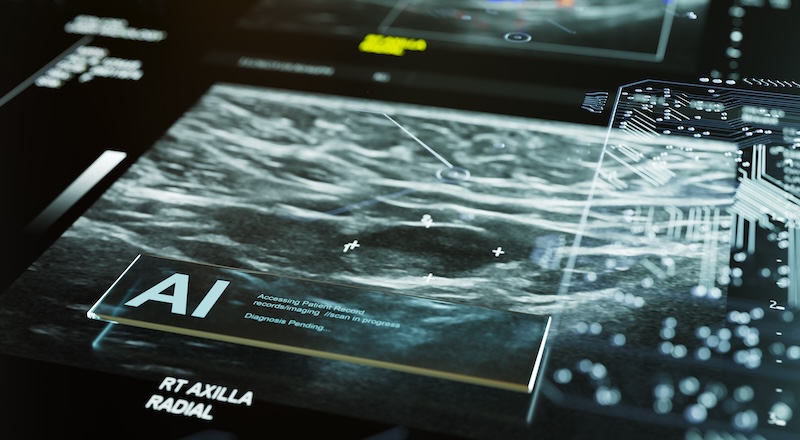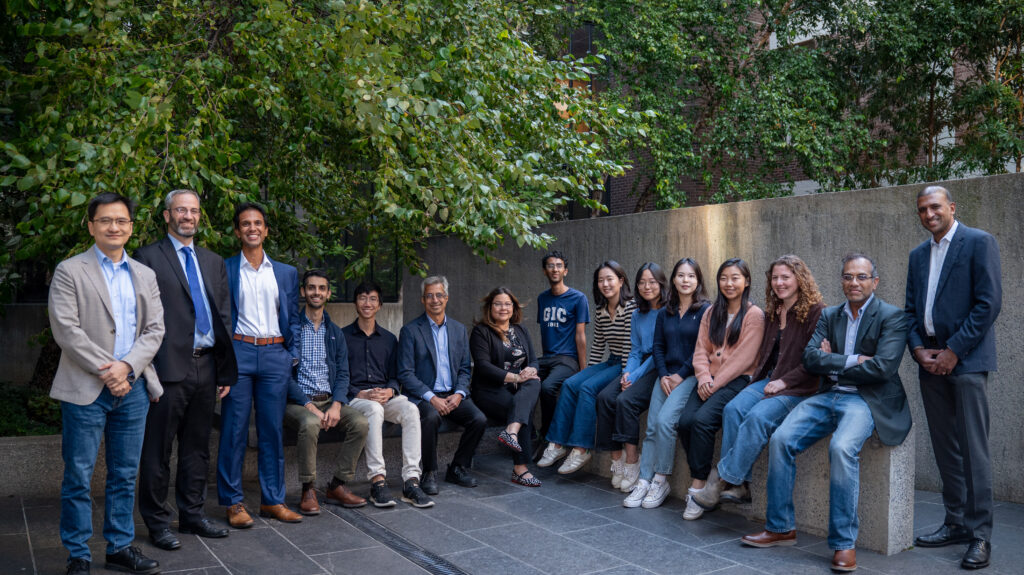
By Ian Scheffler
Researchers at Penn Engineering and the University of Pennsylvania Perelman School of Medicine (PSOM) have received a $7-million, four-year award from the Advanced Research Projects Agency for Health (ARPA-H) to develop artificial intelligence (AI) systems that support personalized medical treatment.
The project, which will be led by Rajeev Alur, Zisman Family Professor in Computer and Information Science (CIS) at Penn Engineering and Director of the AI-enabled Systems: Safe, Explainable, and Trustworthy (ASSET) Center, will focus on breast cancer, heart attacks and sepsis.
In each case, the project will develop systems that help clinicians predict treatment response, leading to better health outcomes for patients. “We are excited to take on the challenge of building AI models for clinical predictions that are not only highly accurate but also accompanied with explanations that clinicians can trust,” says Alur.
This is an exciting project that will bridge our expertise in AI with the clinical expertise of one of the world’s great health systems.
Vijay Kumar, Nemirovsky Family Dean of Penn Engineering
Advances in machine learning — such as deep neural networks and large language models, which underlie popular tools like ChatGPT — have shown tremendous promise in classifying images and making inferences, two crucial tasks in medicine. However, those systems are not yet transparent nor accurate enough for clinical use.
In part, this is because AI systems require vast amounts of data to make accurate predictions; since medical data is protected, AI systems must be specially trained for medical use. At present, AI systems also function like a “black box,” meaning that the steps that lead to their outputs cannot always be determined, leaving their “thought process” opaque.
To develop AI systems that are sufficiently accurate and transparent for medical use, the researchers at Penn Engineering and PSOM will explore multiple avenues within AI research, complementing data-driven models with logical and symbolic reasoning.
The researchers will work closely with clinicians, to better understand how real-world constraints — such as when and how much data is available, how existing workflows can incorporate AI-powered support systems, and how the expected thresholds for various medical markers vary from patient to patient — can be incorporated into the system. Ultimately, the researchers’ goal is to support clinicians with predicting patients’ response to different treatments for breast cancer, heart attacks and sepsis, leading to better health outcomes.
Alur points to the partnership between Penn Engineering and PSOM as a catalyst for innovation. “The proposed research requires close collaboration among Penn Engineering faculty with expertise in machine learning and PSOM faculty with clinical expertise,” says Alur. “Recent initiatives within Penn Engineering and PSOM — from seed grants for AI researchers to our symposium on trustworthy AI — demonstrate how collaboration advances the field as a whole.”

“Funding from the Penn Institute of Biomedical Informatics (IBI) and Abramson Cancer Center (ACC) has supported the collaboration between our PSOM team and the Penn Engineering computer science team and contributed to the success of this ARPA-H award,” adds Qi Long, a co-principal investigator (co-PI) of the project, Director of the Center for Cancer Data Science, and Associate Director for Cancer Informatics of the Penn IBI within PSOM.
As one of the U.S. government’s primary accelerators for technology that advances health outcomes, ARPA-H intends for the project to spur innovations that will have a positive impact not just on patients at Penn Medicine, but across the nation and the world.
“This is an exciting project that will bridge our expertise in AI with the clinical expertise of one of the world’s great health systems,” says Vijay Kumar, Nemirovsky Family Dean of Penn Engineering. “Clinical challenges present so many important and impactful use cases for AI and Professor Alur has built a dream team to develop the foundations for trustworthy AI in medicine.”
“As advances in AI continue to unfold, interdisciplinary partnerships like these will be critical to help practice keep pace with that progress,” adds Marylyn Ritchie, Vice Dean of Artificial Intelligence and Computing and a professor of Genetics and Informatics at PSOM. “We are excited for the potential of these projects to accelerate the use of AI innovations at Penn Medicine.”
In addition to Alur and Long, the other co-PIs are: Rajat Deo, Associate Professor in Medicine (Cardiovascular Medicine); Sameed Khatana, Assistant Professor in Medicine (Cardiovascular Medicine); Mayur Naik, Professor in CIS; Ravi Parikh, Associate Professor in Hematology and Medical Oncology at Emory University School of Medicine; Payal Shah, Assistant Professor in Medicine (Hematology-Oncology); Gary Weissman, Assistant Professor in Pulmonary and Critical Care Medicine; and Eric Wong, Assistant Professor in CIS.
To learn more about the project, please contact Holly Wojcik, Director of Strategic Communications at Penn Engineering, and Eric Horvath, Associate Director of News at PSOM.
Holly Wojcik | hwojcik@seas.upenn.edu | 215-573-4607
Eric Horvath | Eric.horvath@pennmedicine.upenn.edu | 215-821-4289
To learn more about ARPA-H, please visit the agency’s website.
